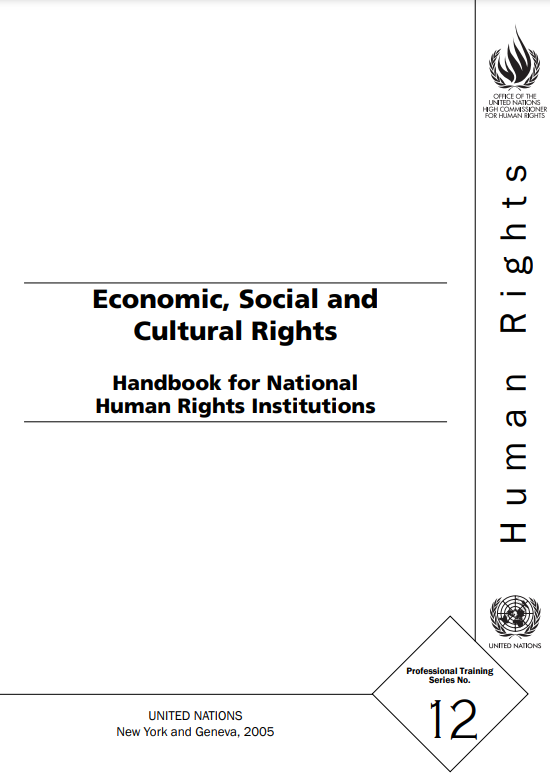
Office of the United Nations High Commissioner for Human Rights
Economic, Social and Cultural Rights - Handbook for National Human Rights Institutions_EN
This handbook is intended to help national human rights institutions maximize the effectiveness of their functions and powers in addressing economic, social and cultural rights. Its aim is to assist national human rights institutions in the development of policies, processes and skills to integrate economic, social and cultural rights further into their work, thereby enabling them to address poverty and development, for example, through an economic, social and cultural rights framework. This handbook will discuss ways in which national human rights institutions can become more effective in protecting and promoting economic, social and cultural rights. It will examine how national institutions’ legal mandates can be interpreted to incorporate economic, social and cultural rights within their jurisdictions, how their functions and powers can be exercised more appropriately in regard to these rights, how they can use their resources most efficiently and effectively and how they can implement economic, social and cultural rights in the political and social contexts in which they operate. Although the handbook is directed specifically at the protection and promotion of economic, social and cultural rights, many of its approaches are equally applicable to the work of national human rights institutions in relation to civil and political rights.
Bahasa : Bahasa Inggris
Lihat Dokumen sebagai PDF